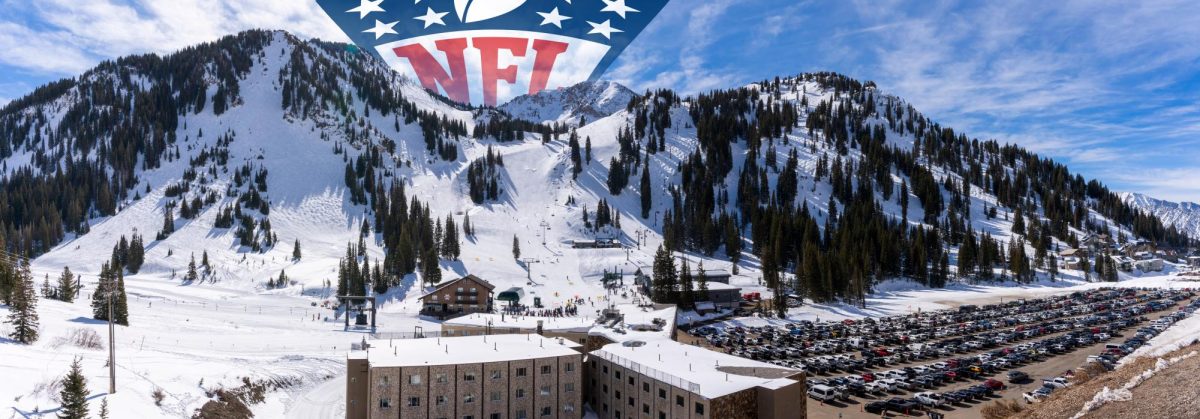With the recent additions of NFL teams to large cities such as Las Vegas and Los Angeles, the hypothetical question of, “What would the addition of an NFL team do for Salt Lake City?” comes to mind.
Realistically, there are very few scenarios where an NFL team would make the move to Salt Lake. Nevertheless, it doesn’t hurt to look at the logistics of what the positive and negative impacts would be if a team did decide to relocate.
Positive Impacts
The easiest way to make predictions about what would happen to the economy in Salt Lake and the state of Utah as a whole is to take a look at how much total revenue is being brought to each city when a relocation or expansion team is added.
The most recent city to add a relocation team was Las Vegas, Nevada. In 2022, the Raiders generated $729 million in revenue and $90 million in home ticket sales. This was the second-most revenue generated in the entire NFL, proving that a relocation can be lucrative.
However, Salt Lake is much smaller than Las Vegas. A more applicable market to look at would be the Jacksonville Jaguars, who were an expansion team added to the NFL in 1995. In 2022, the Jaguars generated $471 million in revenue, despite having one of the worst records in the league. As a similarly-sized city, it is fair to assume that a Salt Lake City team would be in the high $300-400 million range in their first few years as a franchise. With room to grow every year, this would give the economy in Utah a bump.
Negative Impacts
The economy’s growth makes this seem like a very easy decision; however, many may ask, “At what price?”
When looking at bringing a new team to Salt Lake, the first thing to consider is the cost of operation. The most expensive task for Salt Lake would be building a new stadium and related facilities.
Using Las Vegas’ relocation strategies, the stadium would ideally be vibrant and a destination that would attract people from outside the area. The Las Vegas Raiders’ stadium and facilities cost just under $2 billion to build. While Salt Lake could build a less extravagant stadium, this would be a massive expense for the city and could only happen if there was a guarantee the money would be made back relatively quickly, through tickets, concession sales and an overall boost to the economy.
Another problem the city would face is the space that the new stadium and facilities would take up. An average NFL stadium occupies about 15 acres or 600,000 square feet, and that is just the stadium itself. If you consider parking and other requirements of a stadium this size, the city could be looking at upwards of 50 acres of land for the facilities. In a city already dealing with a housing crisis and a renewed need to protect natural land, the logistics of the situation seem almost impossible.
The revenue generated by the NFL team as a whole seems like it would be enough to justify the addition of a team. But realistically, this is not the case. Because many citizens are conscious of their spending and allocate a certain amount of money each year for entertainment purposes, businesses around the area dedicated to entertainment would no longer grow financially. Restaurants, movie theaters, ski resorts and luxury stores could lose a significant amount of revenue with the addition of an NFL team.
In the End
It is up for interpretation whether adding an NFL team would be beneficial for a city like Salt Lake. The negatives seem to outweigh the positives in almost every scenario, but that doesn’t mean it isn’t interesting to look at the logistics of such an impactful move.
However, despite the odds being stacked against the city of Salt Lake, it is not completely out of the question for an NFL relocation or expansion to occur.
Some small-market cities that have been able to maintain their NFL teams are the Green Bay Packers, Buffalo Bills and Jacksonville Jaguars. Like Salt Lake, these are small cities with limited funds — yet they’ve been able to keep NFL teams afloat for decades.
Obviously, a lot of thought and discussion would need to go into funding such an enormous project, but for a growing city like Salt Lake, it is never out of the question.




